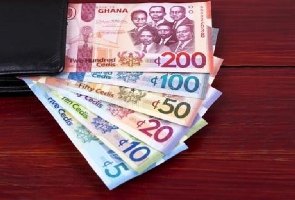The cedi has enjoyed a strong week, gaining ground against major currencies and fuelling optimism among analysts who predict continued appreciation.
This positive outlook is largely attributed to two key factors: anticipated inflows from the World Bank and easing foreign exchange (FX) demand pressures.
The World Bank’s approval of a US$300million Development Policy Operation (DPO) – the first of a three-part series – is seen as a significant injection of liquidity into the domestic market.
Analysts believe these inflows will bolster Bank of Ghana (BoG) interventions, allowing it to fortify a stable cedi exchange rate.
“We expect the local unit to continue strengthening this week on the back of additional inflows from the World Bank. These funds will provide much-needed support to the cedi and contribute to a more stable exchange rate environment,” analysts at Databank remarked in a note on the subject.
Easing FX demand provides added relief
Last week the cedi witnessed a welcome relief from depreciation pressures, thanks to a combination of factors. First there was an improvement in FX supply, likely due to increased inflows from other multilateral partners; second, the BoG’s timely intervention in the spot market with US$11million helped to dampen demand burdens.
This confluence of events resulted in a positive week for the cedi. It gained 1.21percent against the US dollar, closing at 12.38 per dollar on the retail market. Additionally, it appreciated by 0.32 percent and 0.93 percent against the British pound and euro respectively
This comes as the cedi weathered early turbulence around the corresponding period of 2023 to achieve relative stability throughout the year, closing with a moderate depreciation against the US dollar.
The foreign exchange market experienced significant volatility in January 2023, leading to a sharp 20.6 percent depreciation for the cedi against the US dollar. However, decisive actions by the Bank of Ghana (BoG) and improved inflows from various sources helped stabilise the currency.
Consequently, the local unit managed to depreciate by only 7.2 percent against the US dollar for the remainder of the year.
Its modest depreciation last year was supported by inflows from the IMF ECF first tranche, the domestic gold purchase programme, remittances and FX purchases from mining and oil companies, amid monetary policy tightening. The COCOBOD loan facility’s release in December 2023 further supported this stability
“This build-up was primarily driven by the gold for reserves programme and unwinding short-term liabilities. However, the year-end stock of Gross International Reserves stood at US$5.9billion – sufficient to cover 2.7 months of imports of goods and services. This was a slight decrease from the US$6.3billion stock (2.7 months of import cover) at the end of December 2022,” the BoG noted in a statement following its 116th MPC meeting.
Furthermore, Gross International Reserves (excluding pledged assets and petroleum funds) witnessed a significant increase, reaching US$3.7billion by December 2023.
Looking Ahead
While the cedi’s outlook appears promising, analysts remain cautiously optimistic – especially ahead of the end first-quarter profit taking season.
Global economic uncertainties and rising interest rates in developed economies pose potential risks to the cedi’s stability.
However, anticipated World Bank inflows and ongoing efforts by the BoG to manage FX liquidity provide a strong foundation for continued stability.
Though the cedi is definitely on a positive trajectory, it is important for authorities to remain vigilant and monitor external factors that could impact its performance. Analysts have pointed out that the cedi’s outlook for the near-term is only cautiously optimistic.
Business News of Wednesday, 31 January 2024
Source: thebftonline.com













